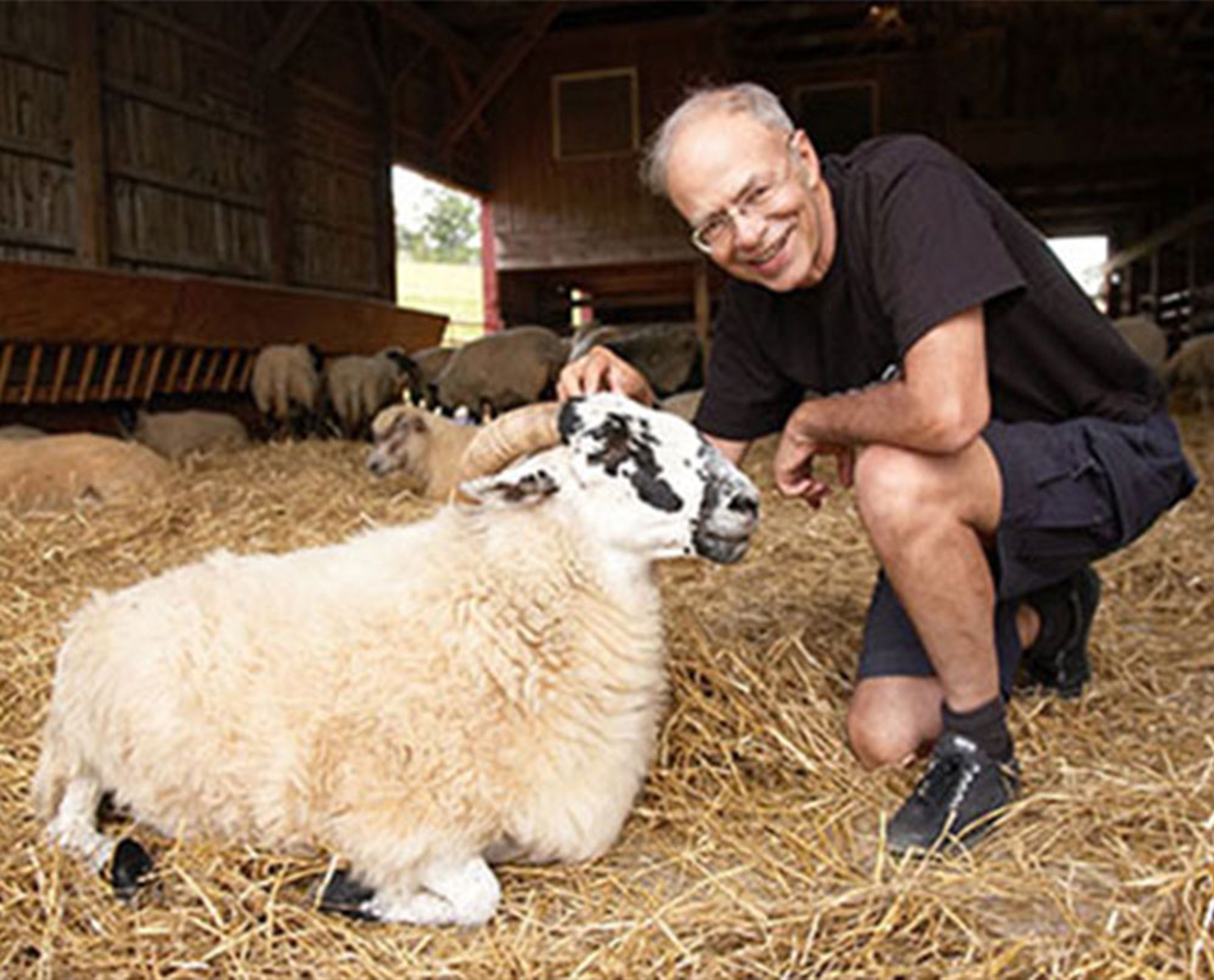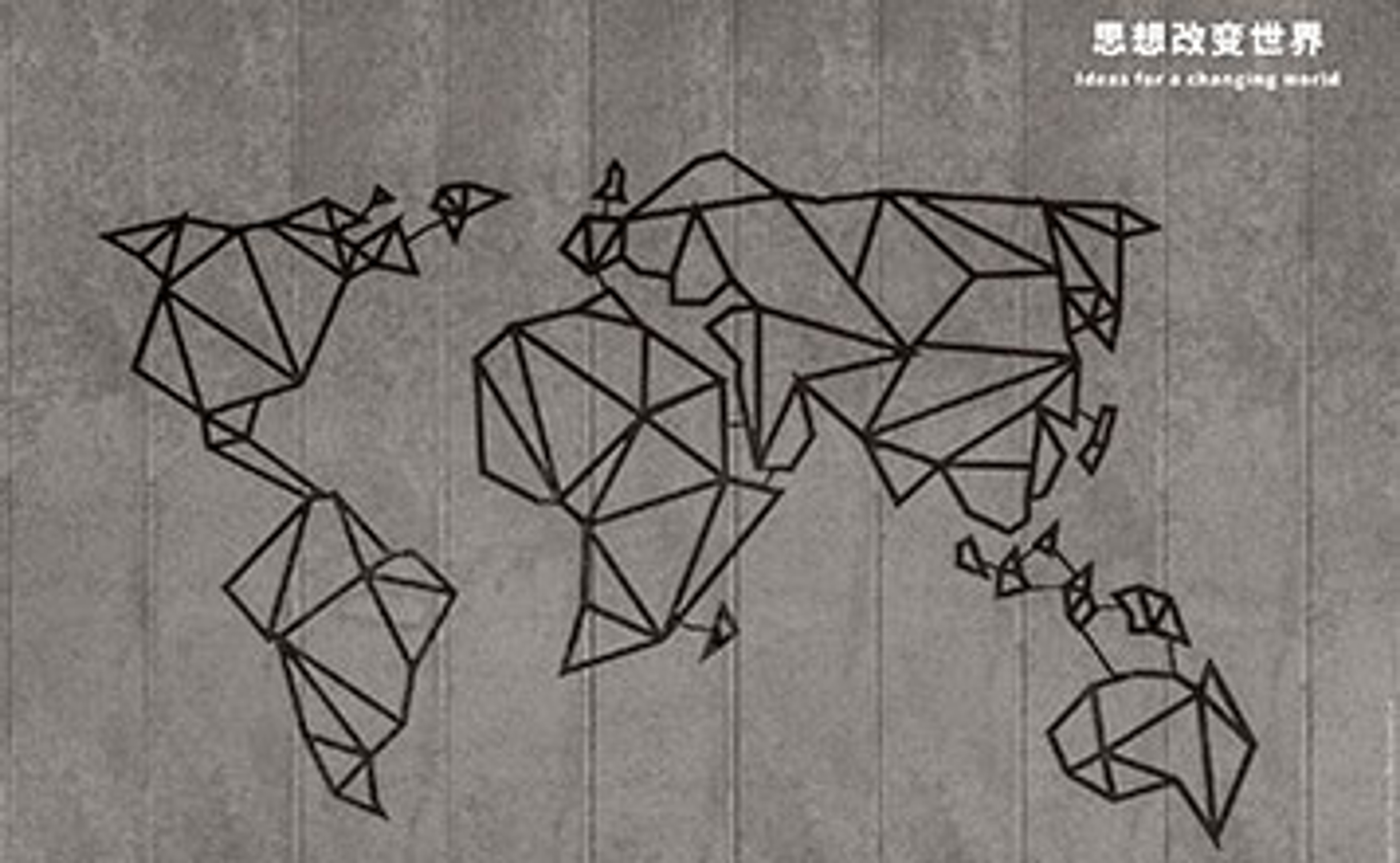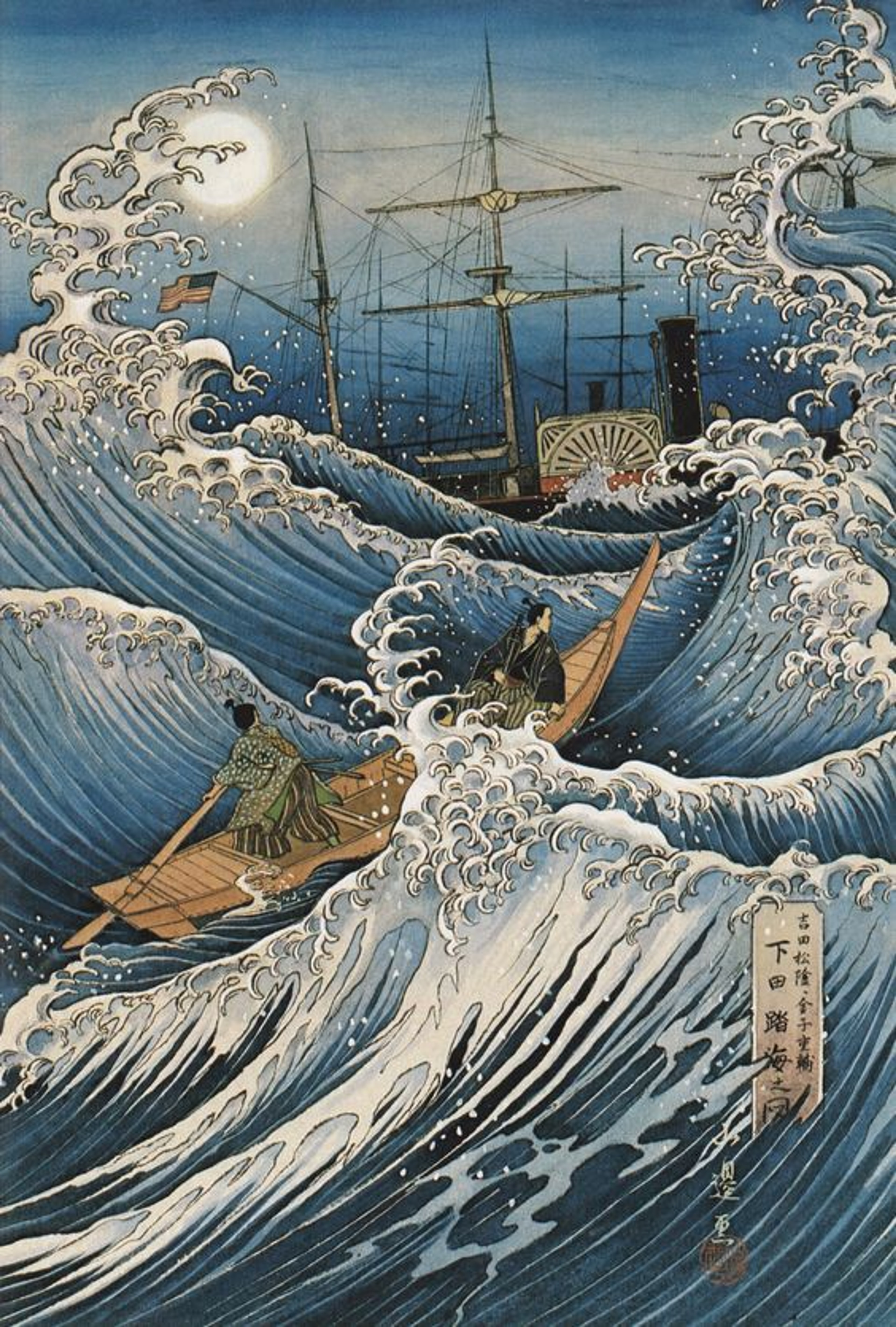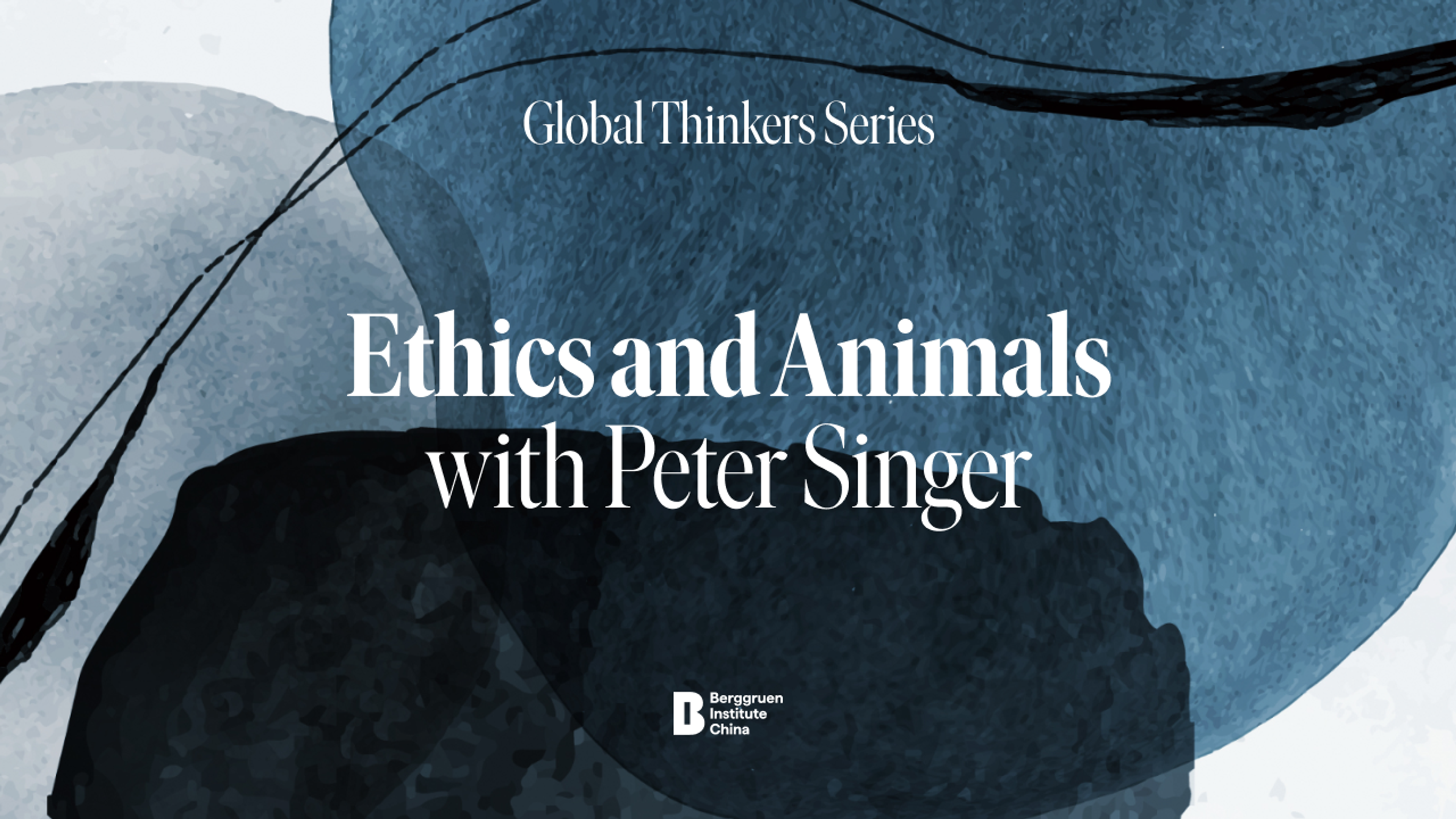In Conversation with Peter Singer: Ethics and Animals
- Date: June 27, 2022
Professor Peter Singer will consider the ideas presented in Animal Liberation, originally published in 1975, and his current thinking about these ideas. He will indicate the significant progress that has been made since the book was first published, and then argue that, notwithstanding this progress over earlier periods, our treatment of animals remains “speciesist” and therefore indefensible. He will argue that we owe nonhuman animals equal consideration of their interests, and will explain what the implications of that view are, and why it is important, both for animals and humans, that we change the way we treat animals, especially in our current methods of raising animals intensively for meat, eggs and dairy products.
Discussion Topics
- What is the moral status of animals? How should we weigh their interests against ours?
- Is it justifiable to treat animals in the way they are being treated today on factory farms and in laboratories?
- If the answer to (2) is negative, what can be done to change our treatment of animals for the better?
Presenter
Peter Singer, Ira W. DeCamp Professor of Bioethics, University Center for Human Values, Princeton University.
Peter Singer was born in Melbourne, Australia, in 1946, and educated at the University of Melbourne and the University of Oxford. After teaching in England, the United States and Australia, he has, since 1999, been Ira W. DeCamp Professor of Bioethics in the University Center for Human Values at Princeton University. In 2021 he was awarded the Berggruen Prize for Philosophy and Culture.
Singer first became well-known internationally after the publication of Animal Liberation in 1975. Singer’s book The Life You Can Save, first published in 2009, led him to found a non-profit organization of the same name that has raised more than US$70 million for the most effective charities assisting people in extreme poverty.
Singer has written, co-authored, edited or co-edited more than 50 books, and his writings have been translated into more than 30 languages. Some of his other well-known books are: Practical Ethics, The Expanding Circle, Rethinking Life and Death, Ethics in the Real World, and Why Vegan?
In 2012 Singer was made a Companion of the Order of Australia, the nation’s highest civic honor. Since 2021, he has been a founding co-editor of the Journal of Controversial Ideas.
Moderator
WANG Hui, Distinguished Professor of Literature and History, Tsinghua University
Wang Hui is the distinguished Professor in the school of humanities at Tsinghua University and Director of the Tsinghua Institute for Advanced Studies in the Humanities and Social Sciences. His research interests include Chinese intellectual history, Chinese literature and social and political theory. He has received numerous awards for his scholarship, including the Luca Pacioli Award (2013) and Anneliese Maier Research Award(2018), and has been Visiting Professor and fellow at Harvard, Edinburgh, Bologna, Stanford, UCLA, Berkeley, Tokyo University, the University of Washington, Wissenschaft Kolleg zu Berlin and Swedish Collegium for Advanced Study among others. He was the co-editor of the influential Chinese journal Dushu from 1996 to 2007. In 2008, the magazine Foreign Policy listed him as one of the top 100 most influential intellectuals worldwide. His recent publications include China’s Twentieth Century (2016), China from Empire to Nation-State (2015), and The Politics of Imagining Asia (2011).
Commentator
GUO Peng, Director, Center for Animal Protection Studies, Shandong University |
Associate Professor, School of Philosophy and Social Development, Shandong University
Guo Peng is Director of the Center for Animal Protection Studies at Shandong University and Associate Professor at the School of Philosophy and Social Development of Shandong University. She received her B.A. in Philosophy from Northwestern University in 1991, her M.A. in Philosophy from Shandong University in 1997, and her MPhil in Philosophy from the University of Sheffield in 2006. She has been teaching in the Department of Philosophy of Shandong University and working at the Institute for Jewish Studies of Shandong University since 1997. She has actively participated in social practice and academic research related to animal protection from 2007 to present. Her main research interests are philosophy of language, animal ethics, and medieval and contemporary Jewish philosophy. Her co-written and co-translated works include Contemporary Jewish Philosophy, The Guide for the Perplexed, and God in Search of Man. Her research papers include “The Anscombe Curve: Intentionality and Mind-Body Holism,” “The Adaptability of Translation and the Truth of Proposition: On Davidson’s ‘Interpretability Strategy’,” “The Associate Descriptions of Proper Names: Saul A. Kripke and John. R. Searle,”“An Introduction of the Thirteen Doctrines of Judaism,” and “On the Local Misreading of Some Contemporary Western Theories of Animal Ethics.” She has also published a collection of personal essays, Loneliness Is Inhumane. She is currently leading a translation series on animal studies, and she is directing several social investigations on human-animal studies and animal welfare.
About the Global Thinkers Series
The Global Thinkers Series invites thinkers who have deep insights into the evolution of different civilizations and the grand narratives of world history to share their knowledge and wisdom. It is hoped that with strengthened understanding and trust between different civilizations, we can help remove the intolerance, arrogance, and misunderstanding that has come to characterize contemporary geopolitics.
Summary
In the context of animal welfare advocacy, how should we view mercy release and live animal couriers? What problems should we solve in animal studies and industrial animal farming? At the event “Global Thinkers Series – In Conversation with Peter Singer: Ethics and Animals” held by the Berggruen Institute China Center, Australian ethicist Peter Singer, former president of the International Society of Ethics and Ira
W. DeCamp Professor of Bioethics at University Center for Human Values, Princeton University, discussed their viewpoints on animal protection.
Professor Singer analyzed the concept of speciesism, but also shared his forward-looking thoughts on global animal protection. Wang Hui, Distinguished Professor of Literature and History at Tsinghua University, moderated the event, and Professor Guo Peng, Director of the Center for Animal Protection Studies at Shandong University, attended the event as a commentator.
Speciesism
When he studied at the University of Oxford, Singer was already an active advocate for the Animal Liberation Movement. His book Animal Liberation, published in 1975, is considered one of the most important works in the field of animal protection. Singer was deeply influenced by Jeremy Bentham, founder of classical utilitarianism, a branch of moral philosophy. Bentham’s dictum – “everybody to count for one, nobody for more than one” – indicates that every individual’s interests deserve equal
care, and nobody’s joy should outweigh that of others. Singer cited Bentham’s theory at the event, saying that when it comes to caring for animals, the question is not can they reason nor can they talk, but rather, can they suffer? If a species can feel pain, it is ethically entitled to protection.
Mammals and birds are the animals with the closest relationship to humans. It would be hard to claim they cannot feel pain. Singer extended this judgement to all vertebrates. So, what about invertebrates? Singer took the octopus as an example. He believes octopuses have extraordinary capacity to solve problems, so they are living beings with consciousness and able to feel pain. Besides, there is evidence that crustaceans such as lobsters and crabs can also feel pain. The latest law concerning animal welfare adopted by the UK Parliament includes stipulations on the protection of lobsters and crabs. However, it remains debatable whether other invertebrates such as insects can feel pain.
Singer explained the concept of speciesism in his lecture. In his view, speciesism is equally important with racism and sexism. “If we reject racism and sexism, how could we accept that a life has to endure worse treatment just because it isn’t a member of our species?” Singer holds that there are two forms of speciesism: one considers humanity’s interests as more important than that of non-human animals.
Human beings are homo sapiens. We shouldn’t care more about the pain imposed on humans just because we are the same species. This is anthropocentrism, which places mankind at the center of the universe. The second form of speciesism holds that the interests of our companion animals such as dogs are important, but that of other animals such as pigs are insignificant. We treat some animals much worse than others, even though the interests of those animals are the same in nature. In fact, pigs are highly intelligent. There is good reason to believe that pigs feel pain like dogs when they are raised for food and transported to the slaughterhouses.
Therefore, in Singer’s opinion, the foundation for the relationship between humans and non-human animals shouldn’t just rest on equal treatment, but should be based on equal consideration. This means we should attach the same level of importance to animals’ interests as we do the fact that they are distinct species. In addition to food and drink, what humans aspire to includes feeling comfort and staying together with other members of the same species. However, the principle of equal
consideration is also applicable to different species with similar interests – both mankind and animals share similar pain, joy, comfort, and discomfort, which are comparable to each other. Therefore, we cannot say that mankind’s interests are more important than that of non-human animals.
In the 18th century, German philosopher Immanuel Kant believed that we humans had no direct obligation to animals because they had no self-consciousness. Kant held that they were nothing but a means to serve one goal – the success of man. This held that animals had no self-consciousness, but failed to explain why animals’ suffering is not important. Singer believes that the idea is groundless, because Darwin told us that other animals evolve alongside mankind and they do not exist for any purpose; they merely exist on the planet. Therefore, it is wrong to think they exist for humans.
Christine Korsgaard, a professor of philosophy at Harvard University, said in Fellow Creatures that moral agents (beings who have the ability to discern right from wrong and to be held accountable for their own actions, such as humans) do need self-consciousness and the ability to think and choose, so that they can act on their own and make moral choices, but moral patients (beings who are entitled to obtain moral
care, such as some animals without higher thinking ability) do not need this. However, both moral agents and moral patients are moral subjects and have moral status, so they should be regarded as equal.
Animals in Research
Singer particularly discussed the topic of animal use in research. It is estimated that hundreds of millions of animals are used in various experiments around the world each year. This issue shouldn’t be ignored by supporters of animal protection. Some philosophers support totally abolishing animal research. However, Singer disagrees with them and holds that under the principle of equal consideration of interests, if
the expected value of the research to the world outweighs the harm it brings to animals, it might be considered reasonable. Simply put, perhaps it is worthwhile to conduct animal experiments if they can provide key R&D of a vital, life-saving drug, whose value in avoiding diseases and deaths is much more than the possible harm they may bring to animals.
For example, when Singer wrote Animal Liberation in 1975, animal experimentation was popular around the world, including Europe and the United States. Today, the EU has forbidden cosmetics research institutions from doing experiments on animals. Singer showed the audience a picture of a rabbit that was tearing out of pain because researchers directly applied products into its eyes for testing. Thus, the rabbit often suffered from eye redness, bleeding, and ulcers. “Ask yourself, if we have reason to do cosmetics experiments on rabbits, doesn’t it mean we can do the same on humans? Remember, cosmetic products are not life-saving treatments. Do we really have reason to impose pain and torture on animals for such products?”
Singer gave another example: in research published by Yin Y-Y, Tian and other authors in the November 2020 issue of Frontiers in Pharmacology, researchers put 10 monkeys into two types of stress for eight successive weeks in order to test the efficacy of an antidepressant. In the eight weeks, these monkeys suffered various kinds of torture 24 hours a day, including food and water deprivation, deafening noise, space constraints, intimidation, and more. Singer questioned the necessity of this experiment: The reasons that humans suffer from depression are different from the concentrated confinement caused by various types of stress; even without any such factors, backgrounds, and traumatic experiences, people may also become depressed. So, whether it is unnecessary to do the aforesaid experiment on monkeys is doubtful. The authors argued that they had cut the number of the monkeys used in experimentation and reduced their pain as much as possible. Think about it: if these monkeys felt pressure 24 hours a day for eight weeks, how could we humans say we had reduced their pain? “If the experiment was
conducted according to relevant norms and had obtained approval from a relevant animal experimentation authority, this indicates either the norms were inadequate or relevant standards were not properly applied.”
In fact, there are many similar experiments. For instance, researchers named the source of stress “Utopia in the cage,” where the monkeys were deprived of food and water, suffered extremely severe noise and lasting light torture, and received the so-called “stick therapy” (which probably meant they were poked with a stick).
Previously, the preprint of the experiment was published in Research Square, but was later withdrawn for ethical reasons. Singer once discussed this issue with Dr. Michele Avissar-Whiting, an editor of Research Square, who told him that she was surprised that this experiment on primates had been approved by any ethical committee.
Therefore, she decided to withdraw the preprint immediately. Usually, such a move happens only to papers that involve behaviors that severely violate research ethics, such as plagiarism and image and data falsification.
Singer pointed out that at present, scientific research administrations of various countries have not formulated clear ethical standards and welfare requirements for animal experimentation yet, resulting in significant and unnecessary harm each year. We must pay close attention to this issue.
Factory Farming
The Food and Agriculture Organization (FAO) of the United Nations estimated that more than 74 billion vertebrates are slaughtered for food production around the world each year, about 370 times the number of animals used in experiments. (This figure excludes fish species.)
In industrial animal farming, chickens have been cultivated to easily feel hunger, so that they can eat more and grow fast. However, their legs are still too immature to support their weight. Singer showed the audience a picture taken at a U.S. hennery, in which a chicken falls on the ground, with its legs spread in the front. Normally, a chicken won’t sit this way. This indicates that its legs have broken under the pressure of its weight. Perhaps someone passing the chicken shed might notice this chicken,
pick it up, and end its life by twisting its neck. This sounds cruel. In most cases, considering there are so many chickens and few people taking care of them, there is a high possibility that chickens like this will die of starvation or dehydration. Singer quoted John Webster, a professor of veterinary medicine at the University of Bristol, saying that this is a systematic cruelty. He likened this to a patient with severe arthritis who is forced to stay inside all day and cannot sit down to relieve pressure on the legs. Chickens cannot sit down because if they did, they would sit on
their own excrement and thousands of chickens in the farm and get burnt by ammonia in the excrement. Therefore, chickens would rather stand all the time than sit.
In the past, it was commonplace to squeeze a large number of laying hens in a small cage. The cage was so small that there was no room for them to extend their wings. The hens spent their egg-producing period – which may last for at least one year – in such small cages. After that, they would be killed. Since the publication of Animal Liberation, such cages have been banned in some places in the UK and the United States. Of course, this is progress. According to Singer, however, there is still a
long way to go to reach an ideal state in which animals are treated ethically.
Intensive pig farming is becoming increasingly popular around the world. Sows are kept in gestation crates the size of their bodies and never able to move around or even turn around. Singer reminded us that poultry and livestock are on a par with pet animals in terms of intelligence, emotional perception, and pain perception. When we feel sad for mistreated and stray cats and dogs, we may ignore that chickens and pigs in farms suffer huge pain throughout their lives. In this context, animal advocates
should oppose mistreatment of farm animals and improve welfare standards in animal farming.
Mercy Release and Live Animal Couriers
In his lecture, Singer talked about two special practices: mercy release and live animal couriers. Mercy release manifests the Buddhist idea that all creatures are equal and we should respect all forms of life. However, releasing life ad libitum may cause consequences such as ecological imbalances and the death of endemic species, which leads to misconceptions about this ‘charitable’ deed. For instance, if we improperly release freshwater animals into the sea, they will die.
Moreover, many released animals are bought from suppliers. Those animals are mistreated in the process of raising and then bought for mercy release, and Singer believes that such mercy release is meaningless, especially when many of them are released into an environment unsuited for their survival, causing their death
eventually. Singer recalled Master Zhaohui, a professor of the Department of Religion and Culture at Hsuan Chuang University and a recipient of the Niwano Peace Prize, once told him, such mercy release will not only destruct compassion but also abet greed, stupidity, and crimes, which is a pathetic distortion of Buddhist doctrines.
Another issue that drew Singer’s attention is live animal transport. “Boxes containing live animals are piled up in delivery stations. If the recipients don’t want them for some reasons, riders just throw them away.” Besides, in live animal transactions, if the animals die in the transportation process, the buyers can be compensated, but dead animals cannot. Singer said that, technically, transporting live animals in boxes is illegal, but the law seems not to be enforced. He expected more efforts to strengthen law enforcement concerning live animal transaction and transportation.
In terms of governance structure, Singer holds that we humans should work hard to achieve effective governance as “guardians” of non-human animals. “Just as we designate guardians to take care of persons with intellectual disabilities who are unable to meet their needs independently, we can appoint guardians to protect animals’ interests, speak for animals, promote their welfare, and tell the world how the interests of animals are seriously infringed.”
Throughout human history, the role of animals has continued changing, from threats to human survival, to means of production, to food, to household pets, and then to targets of moral care today. At the same time, the evolution of human history is a process that mankind reevaluates their position in nature. We humans have experienced humility, confusion, and arrogance in history. However, what can best
reflect the light of human civilization may be how we treat non-human beings in nature after we obtain the power to transform the world. This is the most crucial question that Singer inspired us to consider.
Writer: Pan Pan
Editor: Li Zhilin
Guest Speakers

Peter Singer

Wang Hui





